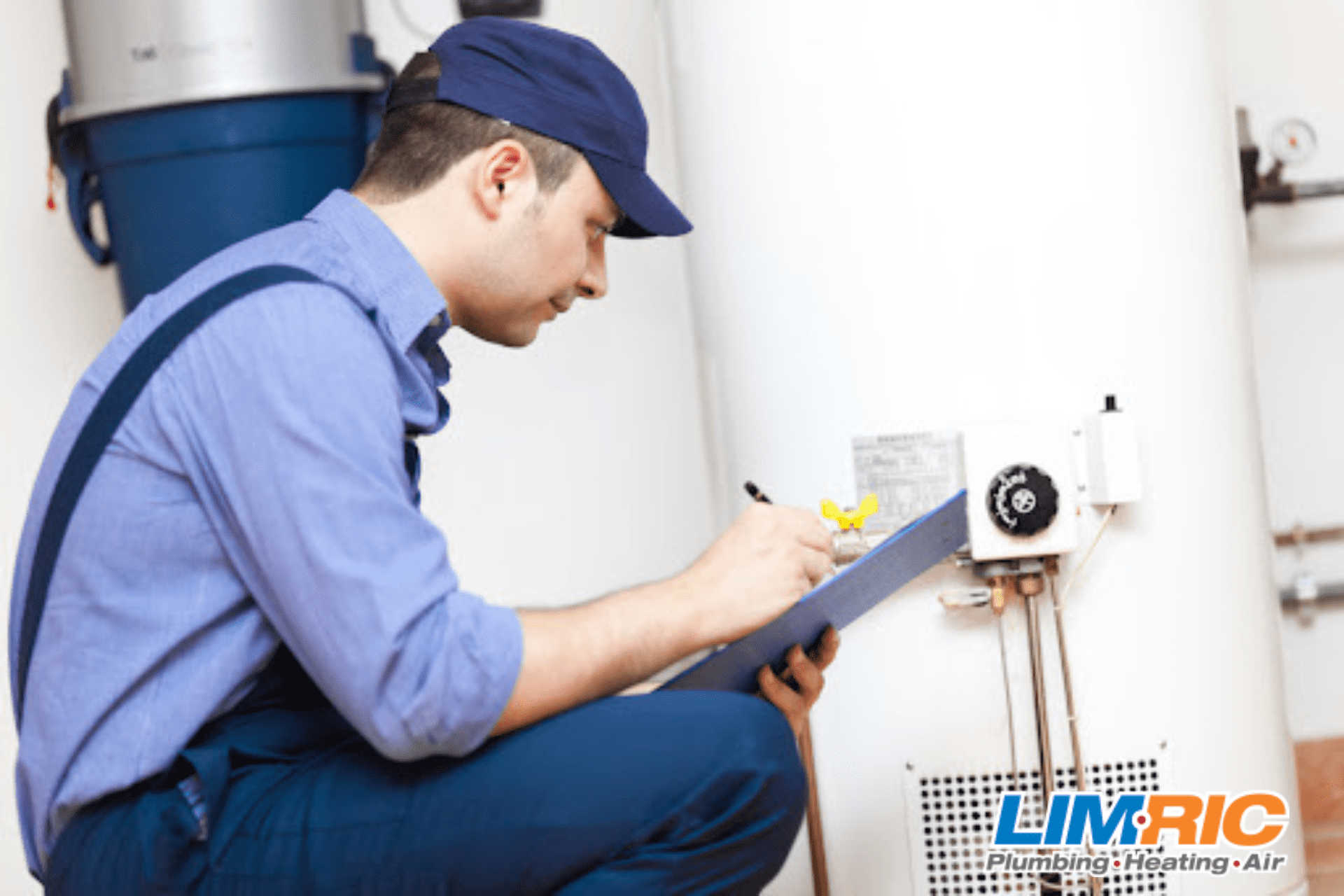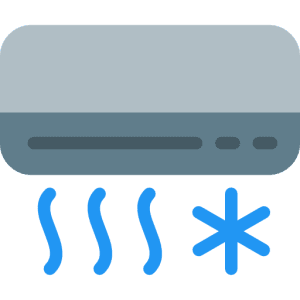How Long Does a Water Heater Last?

When you’re washing the dishes or taking a shower, it’s easy to forget that your water heater is working behind the scenes to ensure you receive the hot water you need. Despite this, it’s important to realize that water heaters are just like any other appliance in your home. These systems can’t last forever — and eventually need to be replaced at one time or another.
So, how long does a water heater last? Should you be gearing up for a replacement sooner than later? When it comes down to it, several factors can influence your water heater’s service life. We’ll discuss everything you need to know below.
Average Water Heater Lifespan
All-in-all, water heater life expectancy can vary depending on the specific type of water heater you have. For instance, traditional tank water heaters typically last between 8 to 12 years, while tankless water heaters can last up to 20 years with proper maintenance.
You also might be wondering if your water heater’s fuel type will influence how long it lasts. When you get into the nitty-gritty, you’ll quickly see that there isn’t much of a difference between electric, natural gas, and propane. Although there can be various pros and cons to all of these water heater fuel sources, gas water heaters won’t necessarily have a longer service life than electric units — and so on.
Factors That Can Affect Water Heater Life Expectancy
As a homeowner, it’s safe to say that your family has different needs than the family next door. You might have a larger household than them, or you might go through more dirty dishes. With this being said, it makes sense that your water heater might have a different lifespan than your next-door neighbor’s or best friend’s.
Many factors can affect how long your water heater lasts, including your hot water usage, overall water quality, and whether or not you make regular maintenance a priority. Let’s go over these factors in more detail.
Hot Water Usage
Your water heater has two main jobs: heating water and distributing it throughout the home. Although this is what the system is precisely designed to do, it’s important to acknowledge that the more frequently you use your water heater, the more wear and tear it will endure. This wear and tear can lead to all sorts of problems — and may require repairs or a replacement.
If you have a larger family that is constantly taking showers, washing their hands, or cleaning dishes, it’s likely that your water heater life expectancy will be shorter than if you had a smaller household. This is simply due to the amount of hot water that you use each day.
So, how long does a water heater last if you use it frequently? It’s difficult to answer this question based on your hot water usage alone. You’ll also want to consider all the other factors below, such as your water quality and maintenance priorities.
Water Quality
Hard water is a major problem for households all throughout the country. If you shower with hard water, you might discover that your hair looks lackluster, your skin feels itchy, and soap scum has started to collect on your shower walls. However, these issues aren’t all you should be concerned about. Hard water can also negatively affect your plumbing system — which includes your water heater.
How long does a water heater last when you have hard water? You can typically expect hard water to shave a few years off of your water heater’s service life. The mineral deposits left over from hard water can build up in your water heater tank. If you don’t clean the tank regularly, this can eventually lead to a malfunction.
Regular Maintenance
It’s important to schedule professional maintenance for your tank or tankless water heater. Although tankless units require some care from time to time, this task is especially necessary for traditional tank water heaters.
Over time, sediment can collect at the bottom of your tank. Excessive sediment buildup makes it difficult for a water heater to heat up the water, so the unit has to work even harder to do its job. When your water heater has to work extremely hard to complete its everyday job, there’s a good chance that it will malfunction or break down due to wear and tear. This sediment can also negatively affect the heating elements.
If you want to ensure your unit meets or exceeds the average water heater life expectancy, remember to have it maintained. A maintenance service will typically include flushing the tank, checking for leaks, and replacing any faulty parts.
Signs Your Water Heater Needs to Be Replaced
Many factors can affect water heater life expectancy — but is it time to replace the unit in your home? First and foremost, you’ll want to check your unit’s manufacturer’s label. This label can usually be found on the water heater tank and will tell you the date it was manufactured. If you can’t find the label, look for a serial number. The serial number can help you determine the unit’s age as well.
If your water heater is getting up there in age, there are many signs that can indicate a replacement is on the horizon. Let’s discuss some of the most common warning signs below.
Water Heater Leaks
If it looks like your water heater is leaking, the first thing you should do is check the pressure relief valve (or T&P valve). When pressure rises inside the water heater tank and reaches a dangerous level, the T&P valve will try to lower this pressure by releasing water and steam. If there’s a puddle of water around the T&P valve, then you’re likely dealing with high pressure and not a leak.
Have you checked the pressure relief valve but still suspect a leak? When it comes down to it, water heater leaks are a major problem and should be addressed immediately. As your water heater gets older, the tank can start to corrode, potentially leading to cracks and leaks. In most instances, the only appropriate solution is to schedule a replacement.
Higher Utility Bills
As water heaters get older, they can lose their efficiency. If your unit has become inefficient, there’s a good chance that it’s wasting a lot of energy to perform its job. As you can probably imagine, wasting energy can cause your utility bills to skyrocket.
Too Many Repairs
Are you constantly scheduling repairs for your water heater? If so, it might be time to replace the unit. Repairs are frustrating to deal with, but they can also become costly if they’re needed time and time again. In some cases, replacing the unit will be the most cost-effective solution.
Upgrade Your Hot Water Heater With LimRic
How long does a water heater last? This question may seem simple to answer, but there are many factors that can influence the longevity of the unit inside your home.
Are you tired of showering in cold water or waiting for your sink faucet to heat up? Turn to the experts at LimRic for a water heater replacement! We’re proud to offer a wide selection of plumbing services in Charleston, SC, including top-quality water heater solutions. We’re happy to walk you through the water heater installation process and answer any questions you may have.
Our plumbing experts always put the comfort of our customers first, whether they need a plumbing installation or water heater repair in Charleston, SC. Replacing a water heater has never been easier. Contact us today to learn more about our services!
- About Us (11)
- AC (13)
- Air Quality (10)
- Circuit Breakers (2)
- Commercial (0)
- Company News (5)
- Electrical (3)
- Electrical Repair (1)
- Energy-Efficient (4)
- Featured (0)
- Furnace (3)
- Generator Repair (1)
- Generators (1)
- Give Back Grant (3)
- Heat Pumps (1)
- Heating (6)
- HVAC (26)
- Plumbing (27)
- Residential (10)
- Thermostat (3)
- Uncategorized (52)
- Water Heater (4)
- Winter (5)











